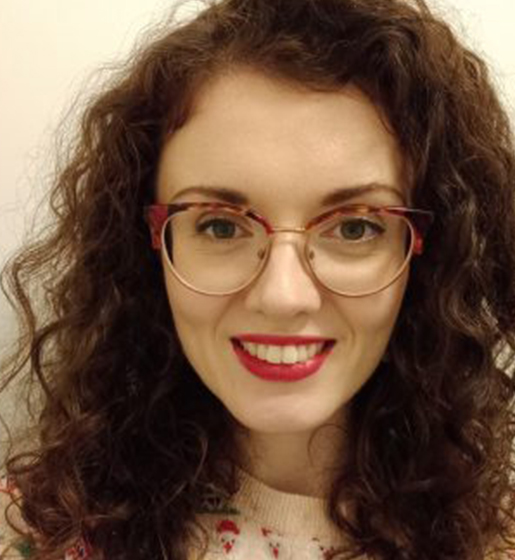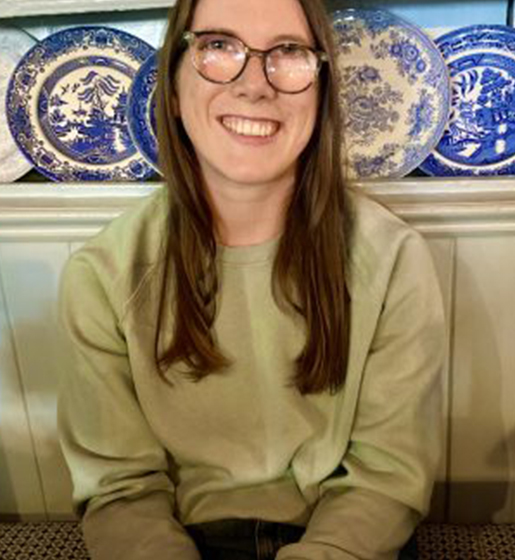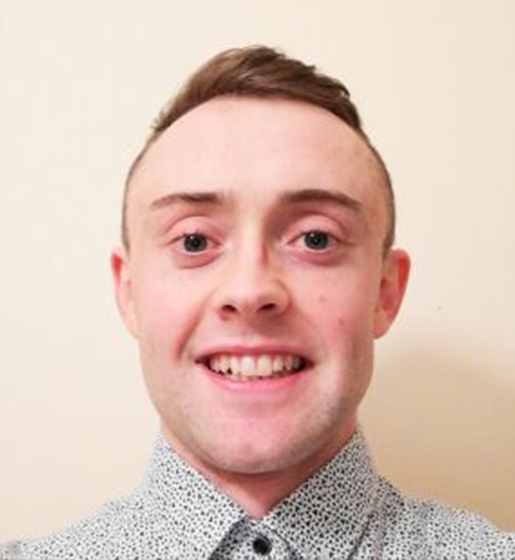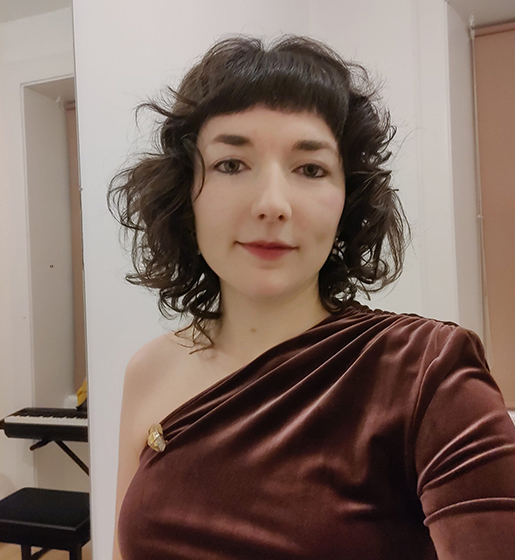Blunders Of A Rambling Commuter
Violent and urgent vibrations rip me from my sleep. My mind flounders, grasping for coherent thoughts like a drowning man flailing for flotation. I wrench myself around, arm reaching through the darkness. The fickle warmth created under the thin duvet through the night abandons me. Tongues of cold air lick my skin, as my fingers stumble across the bedside table.
Cable…table.. — BUZZ — ..book.. — BUZZ — ..table…glasses-Shit!
I feel the lens and frame flee my groping and fly with a soft clatter onto the laminate floor. The vibrations continue to blare as the soft tinkling of my alarm tone, “Forest Melody”, begins. I swing my legs out of bed and the chill embraces me. I blearily fumble at my phone while “Forest Melody” crescendos wildly. I slice it into silence with a swipe of my finger. A dreary sigh gushes out of me, replacing my usual contented yawn.
Jaysus why can’t I have the alarm without the vibrations?
Now — I’m standing in front of the mirror while my razor whizzes across my chin, dismissing the stubble of the bank holiday weekend. Autopilot is the offspring of routine. The chalking off of Monday the 4th of February has begun. Thankfully St. Brigid got rid of last Friday for me!
I choke down my smoothie while I scroll aimlessly at the kitchen table, looking for anything to ignite my day.
With a jolt, I remember.
I must check in with Philomena first thing.
3 missed calls from the principal on Friday morning. She usually only contacts on a day off if it’s important… To her!
Ah I’m there long enough, a day off is a day off. It's probably only something about my permanent contract and shur it's not as if the department was open over the weekend either.
Missed calls are never a nice thing to wake up to after a few pints.
Is ten a few? A couple is probably closer… God I'm going to bed early tonight, I’m still fair shook. Will I skip the gym? Yeah fuck it, I need the rest more.
After stealthily readying myself in the fragile quiet and pre-dawn gloom, I stand at the door, about to twist the handle.
But first, my mantra.
I’ve had it since I was in primary school, I can’t settle myself to leave before I say it.
Dressed, washed, breakfast, lunch.
I firmly push down the door and slip out quietly. I fire my bag into the boot with the confidence of a man who thinks he knows what he’s doing.
Those first few minutes can be raw, but I love the early starts. Those crisp, clear frosty mornings where I watch the sun come up as I crest the hill coming into Geashill. The pinks and oranges unfolding to push away the blacks, blues and purples. That day’s first rays spinning, running and bouncing their way across fields of glittering white. The windmills of Mount Lucas lazily waving at me across the moor.
But this morning it’s pissing rain and I’m stuck behind some bollox of a Scania spraying muck and shite all over the car.
How come there’s only ever cars coming towards me when the bloody road is straight.
Hmmm there’s no long vehicle sticker on the back of it.
Is that a broken line yet?
I know full well it’s not but I know the road and there are no headlights oncoming. I’m doing 75 in 5th, but I drop it into 4th anyway. I careen out from behind it and put the boot to the headlamp. It’s all over in seconds but my white knuckles suggest it was longer.
Jesus I hate doing that.
The car settles into 100 in 6th but I don’t and won't for another few minutes. Mammy would kill me, but she would’ve done it as well.
Ah, only for her!
The 3 other brood rats are probably getting up now. Eileen off to teach, Ciaran to create and Claire to study. Mammy is off to run the school from the typist’s chair in her secretarial office. It’s been nice having all 5 of us back in the same house again. Then again I am the only child that doesn’t have to share a room.
As my heart rate eventually gets down to normal, the sprawling metropolis of Portarlington opens up before me. I keep an eye out for the speed van. The breakfast smoothie has been churning in my stomach. I remember back to the pub on Saturday night. My throat strangling itself in its haste to get the porter into me. My lips sucking at the end of a dirty cigarette while I cough and shout over the music in The Brewery Tap.
Yeah, this is definitely a 2-day hangover.
I never know which is worse, the emptiness of my limbs while my body tries to deal with the last clinging vestiges of the alcohol. Or the stones rattling around my mind as my brain deals with poisons, real and imagined. I reach out to pause the song and the phone flashes red. 10%remaining. I groan as I realise I’ve left my charger in the bag I so confidently threw into the boot.
Right, I'll need something funny before it dies on me.
Tommy, Hector and Laurita keep me going along the meandering stretches, only to depart, so suddenly, outside Monasterevin.
The steady tapping of my feet and smooth sliding of my hands across the scarred steering wheel lead my mind down winding roads. Metaphorically and physically. My best ideas come when I'm in the car. This morning it’s a rhyme about how I'm feeling. It appears in my mind like a torch exploding with a click in a dark room.
Drip-drip. Stones-clack.
Cracking skull is bubbling black.
Seeking. Leaking, wreaking sludge.
Drowning-drowning. Will not budge.
My imagination is always roiling, like a pot of stew coming to a heaving boil. Ideas and thoughts float to the top to mate and breed, only to be whipped away before completion by the moving current. I spend most of my days chasing down half formed thoughts, only to have them slip away into sleep. It’s the curse of almost being very intelligent. I’m in a constant state of anxiety, knowing I’ve definitely forgotten something important.
There are guilty thoughts there too. Wrongs I’ve done and rights I haven’t. Favours not returned and the constant ghostly presence of the hands that have helped me up since childhood. Most of the thoughts are totally irrational. But a weekend of drink is not conducive to cold or logical thought.
And I begin to fester.
The fermentation of alcohol only really begins in the days after its consumption.
I often forget that the hands that got me to adulthood were mostly my own. Every favour as a young man felt like another brick in my bag. The weight of it made me strong. Its constant presence jades me.
But as I’ve grown, I’ve learned to juggle bricks. The bag has lightened. As long as I can keep 2 in my hands and the rest in the air, I’ll be fine.
Breathe out.
Smile.
I briefly glide down the tributary of the M7 at Junction 14. The peace of the morning is pierced by flashing indicators, sudden brake lights and wailing horns. Each four-wheeled beast pursuing its prey with fierce intent. More road. I pass through the noble Curragh before the traffic begins to stiffen at Newbridge. The rain is still falling.
Not doing great for time now, I hope this gets going.
I approach two trucks, one trying to overtake another. It's like watching two prop forwards race to the sideline. A contest where the loser is whoever gives up first and the prize is getting to be first to give up. Suddenly behind them, a red mist ascends.
JE-HE-SUS!
Those tapping feet turn into boots of cement as I ram down on the middle pedal.
Not two trucks overtaking.
Two trucks trying not to crash into each other as they grind to a halt.
Rubbernecking fools!
There's been an accident on the other side of the barrier which has caused the traffic jam of voyeurs on my own side.
I jolt to a deadly stop in the fast lane. My chest heaves like the bellows of a Paolo Soprani and I feel my limbs become light and weak.
Too close.
The ticking and blinking of the automatic hazards confirm I'm still living.
Not worth it. Slower next time.
My knees unlock as the truck in front of me lurches forward and hisses to the left. I lightly press on the accelerator, my left hand trembling as I wrestle the gear stick into submission. As the cars roll forwards, I get my breathing under control and check the time.
Under pressure now.
This has been a rough morning.
The 2 lanes become 3 and I drive like a pinball in a machine until my exit.
Jesus I better not be late this morning after the missed calls.
My palms begin to sweat and my tongue dries as I leave the motorway.
What was she ringing for?
I barely notice how the countryside has begun to prickle with colour again. There are budding ash trees and gently blooming snowdrops in the meadows. All I see are the stone walls suffocated by moss and the greasy grey water on the tarmac.
I cruise around the final bend with 2 sighs. One, of relief that I got here. One, of disappointment that I’ve arrived. Like a steely hand waving at me, I see the gates of the school rise to beckon me in.
Wait… Gates…. Why are they closed?
An uneasy feeling sets in as my car crawls up to the end of the short driveway.
I peer over my dragging wipers and see the car park is empty.
Was my clock wrong?
After a few minutes of losing numerous arguments in my head I decide to take out my charger from the boot.
Jesus did I reset the time on my phone Saturday night?
Ah at least I'll be able to get in early and get a head start on the week.
My phone twinkles to life and I quickly punch in the caretaker’s initials to see his number pop up.
I hesitantly push the call button. Hang up. Then ring again.
"What are you ringing me for at this hour?" Mark huffs.
"Well Mark. Jaysus I'm awful sorry but I must've reset the time on the phone and I'm here mad early. What time will you be in at?" I chuckle to mask my anxiety.
"Man what are you talking about? I thought you were meant to be sick," he barks at me.
Confusion and anxiety knock each other over the head in my brain trying to gain dominance.
"Lad, it's a bank holiday. Don’t ya know it's a day off for caretakers as well!" he sneers down the phone. "You're lucky the good wife had me painting or I'd have reddened ya for waking me. You better not ring Philomena to let you in either. She won't be happy after you not letting her know you weren't coming in Friday!"
My heart sinks down to the headlamps.
My throat constricts. "What do you mean, shur were we not off Friday?" I stammer.
Mark roars with laughter down the line. "Ya durty eegit, I knew ya had it wrong when I seen your Snapchats from the weekend. We have today off, not actual Brigid's Day." He guffaws heartily as I palpitate. "Mark… wait…. Wha… Bu….." I gurgle.
I've never missed a day of work yet.
"Listen, I'm off to paint here. You stew on that and I'll chat you tomorrow."
The line cuts out.
My eyes pinch back tears of frustration.
I swing the car around to stew on the reverse journey home.
Another blunder for the rambling commuter.






